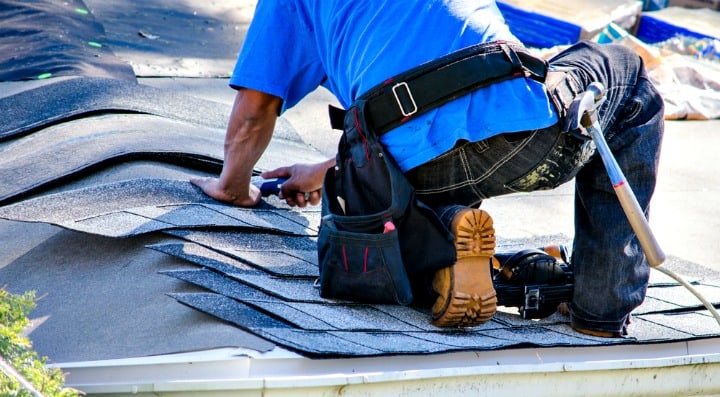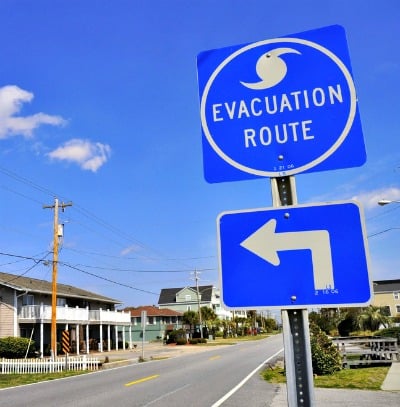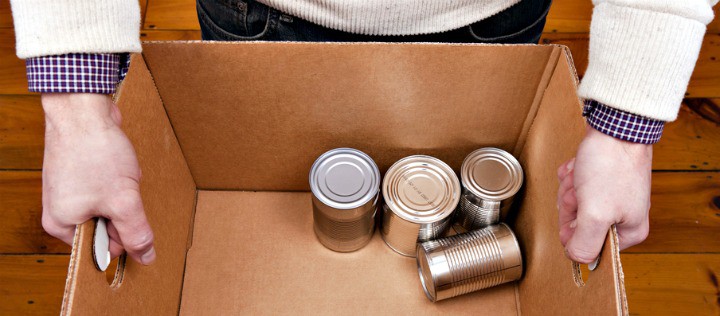5 Scams to Avoid After a Hurricane Hits

As cleanup from hurricanes continues, there’s no doubt we’ve had a busy hurricane season. That means it’s also been a busy time for scam artists looking to make a fast buck from storm victims and those wanting to help.
These scammers operate in a variety of ways — so everyone needs keep an eye out following a major storm.
“We’ve seen it after every significant disaster, and we don’t expect anything different once the Harvey-induced floods recede,” Frank Scafidi, spokesman for the nonprofit National Insurance Crime Bureau, told CNN Money.
RELATED: 5 Tips for Renters During Hurricane Season
Texas Attorney General Ken Paxton already has warned Texans about probable scams.
“Anytime catastrophic storms hit Texas, we witness the courage of our first-responders and the generosity of neighbors coming together to help their fellow Texas,” Paxton said. “Unfortunately, in the wake of the damage from storms and flooding, we also see bad actors taking advantage of victims and their circumstances.”
To help identify these fraudulent activities, insuranceQuotes is highlighting five post-Hurricane scams that may target you.
1. Paying for repairs upfront
This is the most common type of scam when dealing with contractors after a storm, according to the Better Business Bureau. It often starts with a plausible request, such as your contractor explains that he needs a large percentage of the payment in advance to cover the costs of supplies and equipment.

It may sound legit, but it’s usually not. These contractors tend to either disappear completely or do substandard work. Either way, you could be out thousands of dollars.
To protect yourself, get a written contract detailing the work that will be done, the materials that will be used and the prices for labor and materials. You may also want to talk to your homeowners insurance company about insurance for hurricane damages before hiring anyone.
“Accept no verbal agreements,” the Louisiana Attorney General’s Office warns. “Any changes in the contract should be in writing and initialed by both parties.”
A good rule of thumb is not to pay any money before the work is done, but if you do, try to keep it to no more than $1,000 or 10 percent of the total job.
Some states even have laws setting the maximum prepay amount.
Also, it’s always smart to get at least three bids from companies you’ve investigated to make sure they are legitimate.
And always beware of anyone who knocks on your door after a storm and offers his or her services.
Reputable contractors normally don’t get new business this way.
2. Misusing an Assignment of Benefits contract
An Assignment of Benefits, or an AOB, is a document that basically gives a third party the power to act on behalf of an insurance policyholder. According to the Florida Office of Insurance Regulation, this document can be given to a variety of contractors, such as a water extraction company, roofer or plumber.
An AOB gives them the right to “stand in for” the insured and seek direct payment from the insurance company. In Florida, it has become prevalent in water and roof claims.
This may sound like a way to simplify the repair process and save you time, but that’s not always the case.
Why? Once you assign your AOB to a contractor, that person will have knowlege of how much your insurance is willing to pay for particular repairs. This can result in more frequent and severe claims as unscrupulous contractors pad their bills.
A 2016 study by the Florida Office of Insurance Regulations found that claims using an AOB have a much higher severity rate than claims without one, and the frequency and severity of water claims have risen since 2010. Frequency increased by 46 percent and severity by 28 percent since then.

3. Bogus victim relief funds
The rise of social media has lead to a huge increase in victim funds scams. All it takes is a Facebook page with a “charity” link to a scam website to turn your good deed into a fraudulant foray.
Whether on Facebook or Twitter, charitable Americans think they are giving to legitimate organizations, but in reality they could be opening themselves up to a malware download.
Also, phishing emails can show up in your inbox asking for donations. Do not click on any links in emails or text messages you might get from someone you don’t know.
The Better Business Bureau advises that if you would like to make a donation, visit the charity’s website directly by typing in the charity’s name in a browser instead of a link provided in an email. Make sure the intentions of the charity and contributions are clearly stated.
Whatever you see in the coming weeks about Hurricanes Harvey and Irma disaster relief, think before you click and report any suspicious links or charities to the BBB’s Scam Tracker.
4. Robocalls wanting storm victims to pay up
Many heart-warming stories have come to light about complete strangers helping victims in the aftermath of Hurricane Harvey. That doesn’t mean, however, that you should let your guard down. Case in point is a scam where robocalls are used to steal money from storm survivors.
The robocalls tell victims that their insurance premiums are late and if they don’t send money immediately their homeowners and flood insurance will be canceled.
“That is pure fraud. You should only be taking information from trusted sources,” Roy E. Wright, director of the National Flood Insurance Program at the Federal Emergency Management Agency told The Washington Post.
Always contact your insurance agent directly regarding payments of premiums. Often the agent who handles your homeowners policy will be the same agent who facilitates your flood insurance policy.
5. Fake job posts
In the aftermath of Hurricane Harvey, FEMA is warning unwary persons about a fake job offer circulating on social media. The fake post says that the government agency is hiring around 1,000 people and offering $2,000 a week for 90 days. The post also includes a phone number.
One specific Facebook post claims: “FEMA is looking to hire help. $2,000 dollars a week plus expenses. 90 days or longer. They need over a thousand people. Cannot have any felonies.” The post lists an 888 number.
FEMA says the job offer is false.
It can get confusing for some, the Houston Chronicle reports, because FEMA is, in fact, hiring field inspectors. The real notice that was posted asked interested candidates to call a phone number with a 214 area code to get more information.
Consumer expert Amy Davis told the newspaper that she called the 888 number for FEMA from the bogus post and it was busy.
On the FEMA website, the agency said:
“There is a lot of misinformation circulating online and because rumors spread fast, please tell a friend, share this page, and help us provide accurate information.”
Anyone who wants to work for FEMA and help out Harvey victims should visit the official website.
